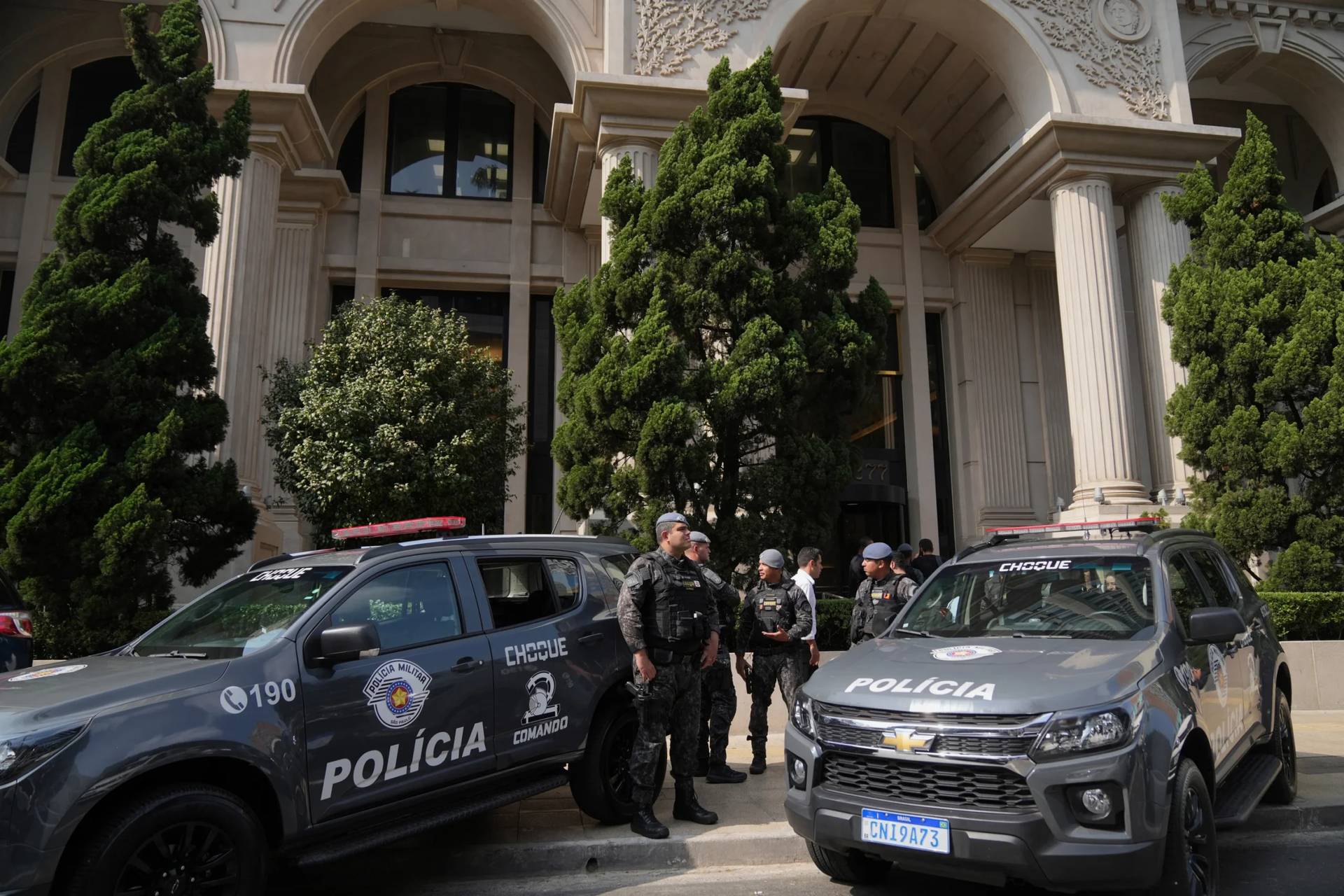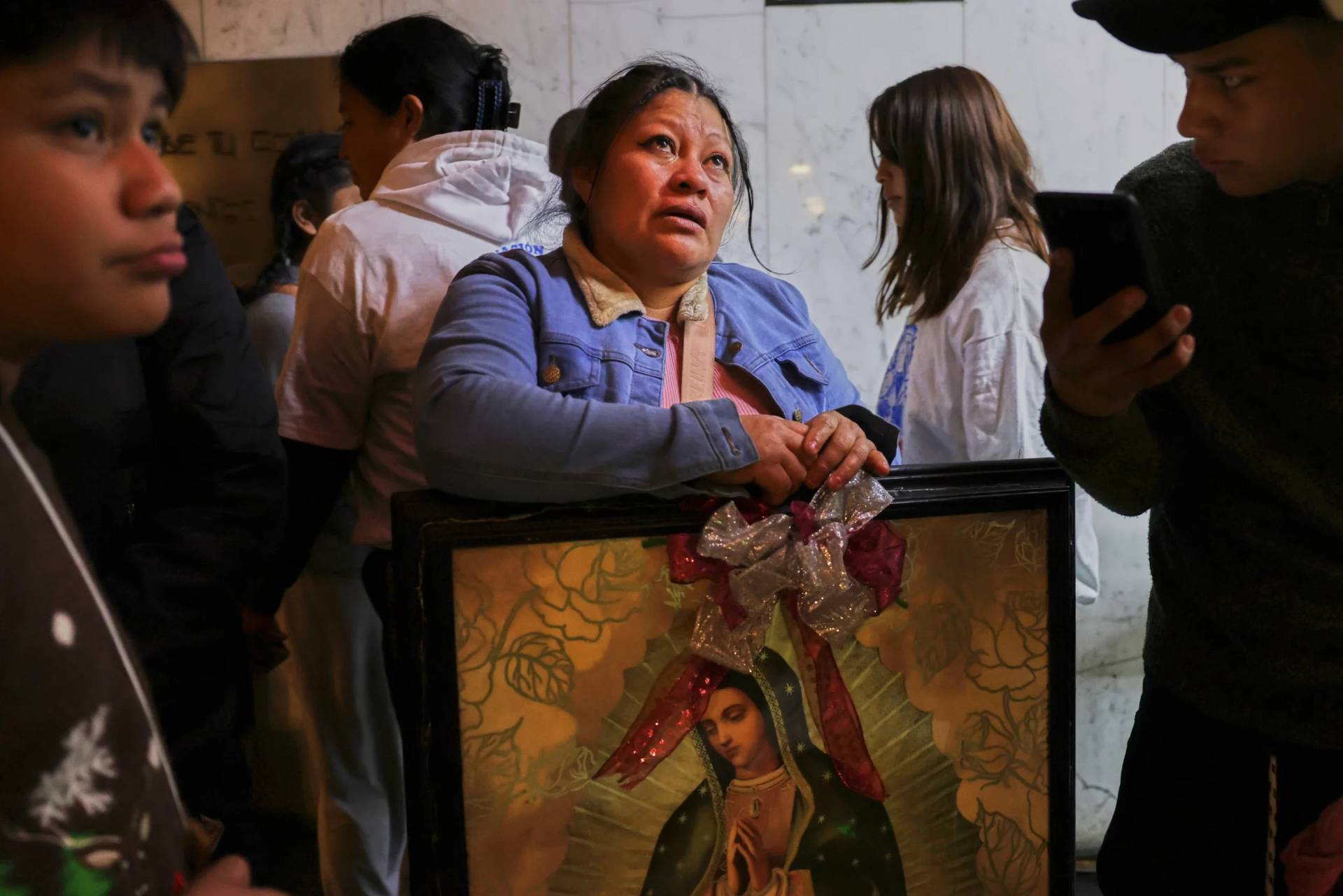ROSARIO, Argentina – Marcela Rabaza Valverde, executive director of Caritas Bolivia, is an economist with two master’s degrees who on any given day is coordinating aid for thousands of prisoners, elderly people and indigenous populations. “At heart, I’m more a catechist than an economist,” she says.
Caritas Bolivia – technically called Pastoral Social Caritas – is part of the umbrella group that unites the local partners of Caritas Internationalis, the pope’s charitable office, often called the “social arm of the Catholic Church.”
Speaking with Crux, Rabaza spent close to 20 minutes going through all the projects Caritas Bolivia has implemented since the COVID-19 coronavirus pandemic began, providing humanitarian aid to thousands of vulnerable people, from immigrants to prisoners.
However, asked about what moves her, Rabaza’s answer is to the point: “Always, my greatest motivation has been the commitment to the Church.”
“There is much that the Church can give to the most vulnerable populations, to show them that they are not alone,” she said in phone interview on Wednesday. “There are instances such as Pastoral Social Caritas that are waiting for them, ready to bring them a message of hope, show them the way of God. Evangelization and catechesis are the central point of what we do.”
“Pastoral Social Caritas does not focus its work on delivering humanitarian aid, it does not focus its work on executing projects, but on the Gospel passage of Matthew 25-35 that tells us, I was hungry and you fed me, I was thirsty and you gave me something to drink, I was a stranger and you invited me in, I needed clothes and you clothed me, I was sick and you looked after me, I was in prison and you came to visit me’.”
“These are the populations with which we work: the stranger, the sick, the imprisoned,” Rabaza said. “And that has to be our commitment: Not to deliver humanitarian aid but to bring hope, evangelization, catechize the people we help.”

Crux: What have been the main areas of work of Caritas Bolivia during the pandemic?
Rabaza: This time of quarantine has been very important for all of us, not only due to the health connotations but also due to the economic, environmental, political and social results that we are experiencing in our country and worldwide.
Pastoral Social Caritas is the social arm of the Catholic Church in Bolivia and therefore its mission and institutional mandate represents a privileged attention to those who are discarded and neglected by governments and society. Pastoral Social Caritas focuses its attention on working with older adults, with people with disabilities, with indigenous peoples and nations, with the imprisoned, with national and foreign migrants, and also with children and adolescents in vulnerable situations.
During these months, we’ve tried to carry out a message of hope for people in these situations, considering that our job is not only to bring humanitarian aid but, above all, a message of hope and a reminder that better days will come, when we’ll rejoice in the arms of Our Lord.
The first case of COVID-19 coronavirus in Bolivia was reported on March 10, and the government began to implement a rigid quarantine on March 21st.
From the moment the strict measures were declared, the most vulnerable population where in-transit migrants, who suddenly saw all local and international borders closed, most of them with no idea where they were going to spend the night of the 21st. We have been able to provide shelter and food to some 700 people, most of whom are from Venezuela, and were headed to Argentina, Uruguay, Chile and Paraguay before the quarantine began.
We’ve also paid much attention to the situation in prisons, that in Bolivia hold 18,000 people nationwide. Most jails see people agglutinated, with no a physical or sanitary infrastructure, where inmates can’t even wash their hands or take a shower. The situation in prisons is really precarious, with the food for the inmates not guaranteed and virtually no doctors. We mobilized resources and have had many positive responses, with aid coming in from Caritas Spain, Adveniat [Germany] and CAFOD [England], which have opened the doors for us to bring humanitarian aid to prisons.
We’ve been able to reach 7,000 of those imprisoned, focusing first on the jails that receive the least attention from the State.
It is noteworthy that during the pandemic, Caritas has issued several statements expressing our concern regarding the need to attend to these populations before they reported cases of coronavirus. But the government neglected the situation until three prisons reported cases, with five people dying in one of them. There’s been a national indult issued to those imprisoned for minor crimes, but its approval took weeks, and it wasn’t implemented until the first deaths were reported.
For Caritas, helping the imprisoned is a priority issue, so we’ve put ourselves at the disposal of the government to help give out the aid. But my understanding is that the situation has overcome the government to the point that the security minister has COVID.
On the other hand, we have the elderly population. With 18 homes for the elderly, the Catholic Church helps over 1,800 older adults. One of our biggest concerns here has been that these houses live on the donation of food from the neighbors and family members. Yet with the ongoing critical situation, people have stopped sending food. Most of these houses are run by nuns. We have been able to approve a Caritas Internationalis project, that will allow us to secure the food, medicine and safety supplies for all these homes for the next month.
However, not all the homes for the elderly have been able to comply with the safety protocols, and we’ve detected cases of COVID in three of our homes. In one of them, that hosts 55 elderly, we saw 11 dying of COVID.
Another group we have focused on is the visually impaired, whom, thanks to Caritas Spain, we have been able to help with food. There are more than 190 families that have been reached, preventing them from leaving their homes, where they have to touch everything to know where they’re going to. But as the quarantine is extended, the needs continue to grow, so we will have to look for alternatives to continue helping this population group.
We have also supported indigenous peoples and nations throughout the Bolivian Amazon, and we have been able to reach more than 5,000 families with food supplies. We have made a statement in favor of indigenous peoples, who have been quite flogged recently: The fires last year, that destroyed their lands and crops; politically they’ve been overlooked; and now the pandemic, that is completely out of control in most of this region.
We also have the “Feed Hope” campaign in supermarkets, where people can donate food that we then distribute to orphanages and among the poorest populations. And on Tuesday we launched the “Recycle and Don’t Fail” campaign, aimed at more than 10,000 people who are dedicated to recycling garbage nationwide. We have joined forces with other institutions that focus on environmental care to buy biosafety elements for people who recycle and who are highly exposed to the virus when handling garbage.
How have you financed all these projects, at a time when the income of parishes and the Church also at a global level has been diminished due to the lack of Sunday collections, with the presence of the faithful suspended at most Masses globally?
There is an important difference to be made here: Pastoral Social Caritas is the social arm of the Church that serves the vulnerable population. The liturgy area is another commission within the Bolivian Bishops’ Conference, and they oversee parishes and the contribution that is made in the celebrations. There is a major problem with this, and concern was raised during the meeting of the executive secretaries of the conference: Parishes are failing to sustain themselves because there are no Eucharistic events.
Caritas is sustained through projects that have to do with caring for the vulnerable population. Pastoral Social Caritas Bolivia has 26 people who work as national coordinators on different topics. Since most of the staff depends on projects, the first thing we did was talk to our funders to carry out a budget reformulation to include humanitarian aid. We have also reoriented our activities through, for example, online training and communication work to achieve the objectives we had set.
And we had countless meetings with our backers to bring up our needs to them, and all of them have helped us to make sure we could secure the salaries of all our personnel. In addition, some areas of the Caritas building is leased to public entities, and this income has helped us guarantee we can cover all our administrative expenses.
What motivates you, Marcela, to dedicate yourself to Caritas, when you could be working on things that would imply a greater financial gain for you at a personal level?
I am an economist by profession with two master’s degrees. I have worked both in the public and private sectors, and also internationally, for instance, in Santiago de Chile. But always, my greatest motivation has been the commitment to the Church. I think I am more a catechist than an economist: I have had catechesis in my heart for more than 22 years. And that commitment to the church has always been with me. I first worked for four years at Caritas starting in 2000, then in the public and international sectors, until I returned to Caritas, after 15 years, but this time in a management position. Before, I used to think “we should do” something, and now I can do it. This is a great motivation!
There is much that the Church can give to the most vulnerable populations, to show them that they are not alone. There are instances such as Pastoral Social Caritas that are waiting for them, ready to bring them a message of hope, show them the way of God. Evangelization and catechesis are the central point of what we do.
Pastoral Social Caritas does not focus its work on delivering humanitarian aid, it does not focus its work on executing projects, but on the Gospel passage of Matthew 25-35 that tells us: “I was hungry and you fed me, I was thirsty and you gave me something to drink, I was a stranger and you invited me in, I needed clothes and you clothed me, I was sick and you looked after me, I was in prison and you came to visit me.”
These are the populations with which we work: the stranger, the sick, the imprisoned. And that has to be our commitment: Not to deliver humanitarian aid but to bring hope, evangelization, catechize the people we help.
That inspires me, knowing that we can do many things, and my technical training allows me to do my job, but without losing focus, which is catechesis.
Do you have any positive takeaway from this time of pandemic?
Yes. This time of pandemic can be seen as lousy- socially, economically and politically- for everyone.
But we can have a positive view of the circumstances: We can rescue something that has been very visible, and that is solidarity. Caritas means charity, that is, solidarity. And this time of pandemic has been a beautiful time to express solidarity, the detachment that people have shown through our campaigns, donations or simply wanting to care for the neighbor or worry about a relative who is an older adult.
They are all facts that lead us to rescue that there have been positive things during this time, which as Pope Francis has said is a moment of reflection to see beyond our problems.
Follow Inés San Martín on Twitter: @inesanma

















